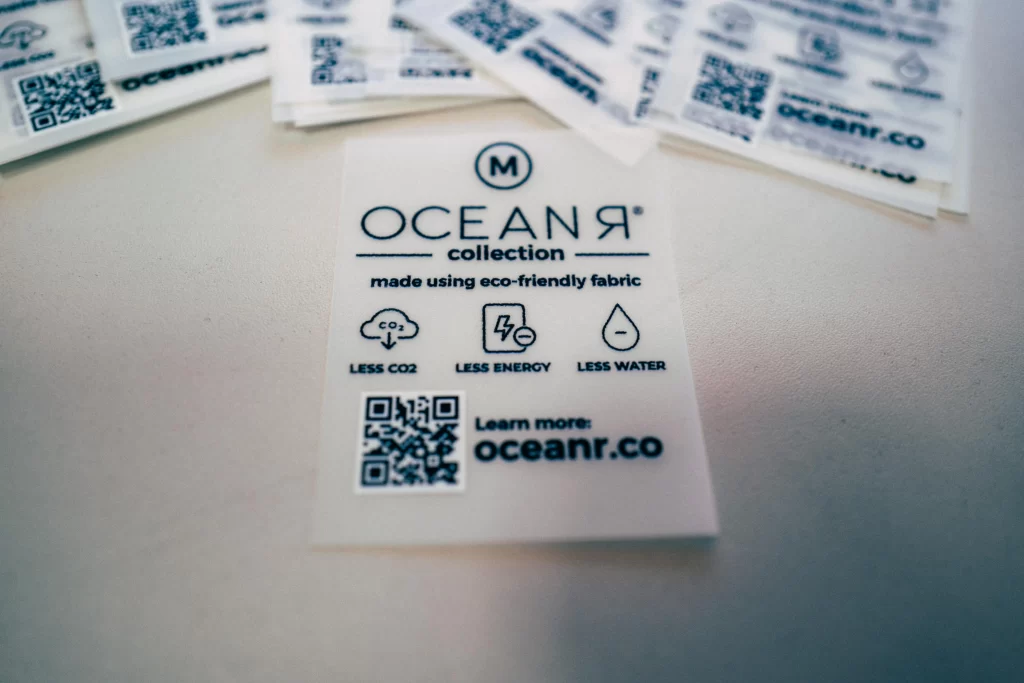To create a more sustainable fashion industry, the European Union is forging a transformative path with its Digital Product Passport (DPP). This is a digital identity card for products manufactured in the EU that will encourage transparency, traceability, and circularity.
As a Certified B Corporation specialising in eco-conscious apparel, the OCEANR team is not only on board with this initiative, but we have already started our DPP journey.
Click here to read our dedicated DPP page.
What is the EU’s Digital Product Passport?
The EU’s DPP, introduced under the Ecodesign for Sustainable Products Regulation (ESPR), mandates that starting in 2024, nearly all products sold in the EU include a digital passport. This record provides extensive product details such as compliance data, materials, environmental impacts, user manuals, and disposal guidance. This information should be accessible through QR codes or similar digital means, much like the existing information available on OCEANR products through our BCome QR codes.
Click here to read more about our product lifecycle analysis data.
Beyond boosting traceability and authenticity, the DPP serves vital roles in supporting circular economy goals, such as reuse, repair, and recycling. Simultaneously, it also facilitates regulatory compliance and smarter supply chain management
How OCEANR is Ahead of the Curve
Ethical business operations are core to OCEANR’s values — the well-being of our people and our planet are central to what we do. We are committed to transparency and sustainability across our supply chain, and there is where we are poised to align with the DPP.
We have already implemented:
1. QR codes: Every OCEANR product includes a unique QR code printed directly onto the fabric. A quick scan reveals a detailed product page featuring the product’s entire lifecycle, all the way from raw materials to end-of-life options.
2. Lifecycle Data Analysis: Our QR-linked product pages reveal key sustainability metrics, such as carbon footprint, water usage, and kilometres travelled, all benchmarked against industry norms. This empowers consumers with accessible, easily understood data.
3. Reinforcing Circularity: By offering a Take-Back programme, we aim to encourage a shift from consumerism to circular consumption. Long-term, this keeps garments out of landfills and in circulation.
4. Combatting Greenwashing: With verifiable and accessible data, we offer real accountability. The DPP transforms sustainability claims into tangible, scannable evidence, backed up by objective data.
5. Empowering Consumers: Ultimately, the DPP empowers consumers, helping them to compare the ecological and social impacts of each item before purchase. This works to increase awareness of conscious consumption and encourage more sustainable habits.
Looking Ahead at the Bigger Picture
As the EU formally rolls out the Digital Product Passport, OCEANR aims to both demonstrate best-practice leadership for industry peers and to future-proof its business model by embracing transparent sustainable initiatives.
By embedding openness, data detailing, and circular economy incentives into each product, OCEANR doesn’t just meet requirements, we set a standard. We believe that modern consumers aren’t just buying clothes, they are voting with their values. With its DPP-enabled transparency, OCEANR makes that vote clear, informed, and sustainable.



